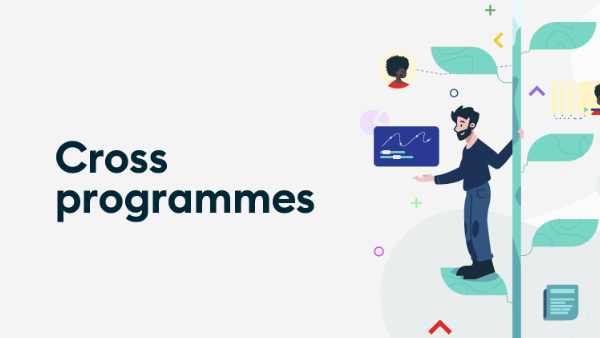Real Leadership: The Importance of Emotional Intelligence

Emotional Intelligence (EI) characteristics: Are they genetic or learned?
An individual's emotional intelligence (EI) consists of a variety of skills and characteristics that can be learnt and developed over time. The ability to identify, understand and manage not only our own, but the emotions of other people too is a skill that many do not appreciate enough. Our childhood development, environment, and genetics all play key roles during our lifetime in how we develop these skills and how they shape us in our personal and professional lives.
Emotionally intelligent people are generally aware of what they feel and what their emotions mean, as well as how their emotions affect other people - and in leadership, emotional intelligence is essential for success.
If you’re wondering what a person with low EI intelligence looks like, just take a look at the TV character, Sheldon Cooper. Sheldon Cooper plays a child prodigy and renowned theoretical physicist in The Big Bang Theory. Although he’s a well-known genius in his community and possesses excellent intellect, he greatly suffers from a distinct lack of emotional maturity, which leaves him baffled by even the most basic social interactions.
There are many examples in the show where Sheldon’s lack of empathy, reasoning and understanding of his and others’ emotions creates a lot of confusion and causes others to avoid situations of confrontation with him for fear of his reactions.
Although he portrays a character who is rigid and set in his ways, with the help and support of those closest to him, Sheldon over time grows to learn ways in which he can show empathy. He makes an effort to understand not only his emotions but those of his friends and family and begins to mend burnt bridges with distant relatives. In other words, EI is a skill that can be learnt with the right support system, tactics and training.
According to Daniel Goleman, an American psychologist who helped to popularise emotional intelligence, there are five key elements to it:
- Self-awareness - they understand their emotions, and because of this, they don't let their feelings rule them.
- Self-regulation - they have the ability to control emotions and impulses.
- Motivation - They're willing to defer immediate results for long-term success.
- Empathy - The ability to identify with and understand the wants, needs, and viewpoints of those around you.
- Social skills - Those with strong social skills are typically team players.
Emotionally intelligent leadership fosters a climate of safety where employees feel comfortable taking calculated risks, suggesting ideas and expressing their opinions without fear. Here, collaboration isn’t just an objective, but it becomes an integral part of the organisational.
Emotional intelligence in the workplace
Emotionally intelligent leadership fosters a climate of safety where employees feel comfortable taking calculated risks, suggesting ideas and expressing their opinions without fear. Here, collaboration isn’t just an objective, but it becomes an integral part of the organisational.
Here are some examples of what emotional intelligence may look like in the workplace:
- Employees are able to express themselves openly and respectfully without fear of offending coworkers.
- When new initiatives are introduced, resilience is evident.
- There is flexibility in the workplace ecosystem.
- It is common for employees to spend time together outside of work.
- Freedom of creativity is celebrated, encouraged and consistent.
- Active listening in meetings is the norm.
- Employees are able to seek help where needed and can express themselves in a safe environment.
An emotionally intelligent leader can use emotions to drive the organisation forward. Effectively implementing change is an important responsibility for leaders within an organisation, and by understanding - and preempting - the reactions and or emotions of employees and coworkers, leaders are able to minimise disruption while making these changes.
Anyone who has ever worked in a toxic environment can attest to the importance of fostering empathy in the workplace. Now, the question is, which type of leader is more likely to succeed? The one who shouts at their team when they’re stressed? Or the one who calmly assesses a situation?
The role of a leader is inherently stressful, being responsible for hundreds or even thousands of other people can take its toll.
Leaders who lack emotional intelligence are prone to unravelling in stressful situations because they aren't capable of handling their own emotions. These feelings might manifest in being passive-aggressive, verbal attacks or creating a hostile working environment. Lacking emotional intelligence doesn't necessarily mean leaders will lash out at their employees, but it can mean they are unable to handle conflict well.
Whatever the outcome, low EI within working environments can create stressful conditions for employees as they are found either walking on eggshells to prevent offending others (being distracted by fear as opposed to being focused on work), lack of collaboration as employees are discouraged or feel nervous about contributing their ideas and a lack of motivation if employees feel their leadership lacks the ability to identify and resolve any conflicts.
Why emotional intelligence is important as a leader
In leadership, it’s not only the technical skills or knowledge you have learned and developed during your career that’s important; an emotional element needs to be considered.
Emotional intelligence helps leaders manage stress, successfully coach teams, deliver feedback, and collaborate with others.
In fact, emotional intelligence accounts for nearly 90 percent of what sets high performers apart from peers with similar technical skills and knowledge.
But why is it important as a leader? Leaders set the tone within their organisation, and without emotional intelligence employee engagement will be lower and turnover rates will likely be higher too.
If you’re unable to communicate with your team or collaborate with others effectively, the technical skills that you have developed won’t seem so important - and will likely be overlooked.
By mastering emotional intelligence, you will not only continue to advance your own career and position as a leader, but also push your organisation to greater heights as you scale.
How to improve emotional intelligence in the workplace
In a competitive workplace, developing EQ skills is vital for success. But it isn’t only worthwhile for your own success, an emotionally intelligent workplace can also boost the productivity of your coworkers, teams, and the business.
Higher EI/EQ in leadership, when applied effectively, has a funny way of starting a trickle-down effect of positivity and efficiency in the workplace.
According to emotional intelligence experts Cherniss, Goleman, Emmerling, Cowan, and Adler’s ‘Bringing Emotional Intelligence to the Workplace’ (1998), there are four phases to implement emotional intelligence training and overall culture:
- Preparation
- Training
- Transfer
- Evaluation
During phase one - the preparation phase - you should:
- Assess the organisation’s needs
- Assess personal strengths and limitations
- Provide feedback with care
- Encourage participation (but don’t require it)
- Link learning goals to personal values
Once your plans are in place, you can start training in phase two by:
- Fostering a positive relationship between the trainer and learner
- Maximising self-directed change
- Setting clear goals in manageable steps
- Maximising opportunities to practice emotional intelligence
- Providing frequent feedback on that practice
- Relying on experiential, hands-on methods
- Building support for staff
- Enhancing insight into emotions and thought patterns
When you hit phase three, your aim should be transferring and maintaining skills learned by:
- Encouraging use of the skills learned on the job
- Providing an organisational culture that supports learning
In phase four, focus on evaluating the changes that come about from the EQ training by conducting ongoing evaluation research.
Strategies for your workforce
You can develop emotional intelligence skills within your organisation through strategies which will in turn lead employees to be happier at work and more successful in their jobs.
1. Stop and think about feelings
EI begins with self and social awareness - the ability to recognise emotions, and their impact, on you and others. Emotionally intelligent people don’t let their feelings rule their behaviour thanks to this awareness - which begins with self-reflection.
2. Show empathy towards others
Any team member needs empathy - and not just leaders. Why? Empathetic people can recognise and respond to other people's feelings and think about how it feels from their perspective. Putting the shoe on the other foot can be extremely helpful when making business decisions.
3. Listen to understand and not to answer
Listening is a valuable skill which is often overlooked. Even if you don’t agree with a team member’s opinion, acknowledge what they’re saying and tell them you hear them.
4. See challenges and criticism as a learning opportunity
Criticism and challenges don’t always need to be a bad thing. Encourage your employees to look at how they handle criticism and to deal with feedback in a positive way.
To accomplish this, employees should address their emotions when receiving feedback and focusing on how they could deal with a similar situation in the future.
5. Manage your relationships well
The final step when developing emotional intelligence is learning to manage your relationships well. Good EI improves social and networking skills.
With high emotional intelligence you will be able to communicate effectively, deal with conflict more smoothly and encourage more trust in colleagues.
Developing emotional intelligence will be a crucial part of your career as a leader - but this is something that will definitely improve with age and experience if you put the work in.
In the fast-paced worlds of startups and scaleups, you should learn the best tips to fast-track your EQ as this will lead to less stress and anxiety, and provide you with greater resilience at work and better coping strategies to drive the business forward.


